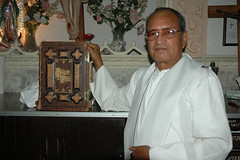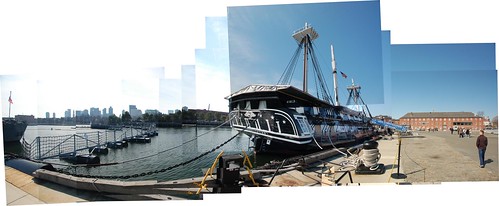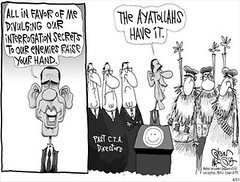The Choice in the Islamic Religion
The notion of choice according to the Qur’an
In the Qur’anic text there is no reference to the choice in the proper term between belief and disbelief in God. There are repetitive direct allusions where one can deduce the notion of ‘choice’.
The Qur’an is considered by Muslims as the first source and the most reliable and important in Islam. It is, for Muslims, the Word of God (verbatim). The second source is the Tradition of Muhammad (the Sunna) comprising his sayings and his practice of Islam (in Mecca and Medina (610-632 A.D.).
Concept of Man
The concept of man in Islam is founded on the belief that God has created man from nothingness by an immediate act of his will.
The creation of Man
In Islam man was created form clay by God
« When your Lord said to the angels: « I am about to create Man out of clay. And when I have fashioned him and breathed into him from My spirit, then fall down before him prostrate. » Qur’an: Chapter 38: verses 71-72
In Islam the Evolution Theory is not accepted. According to Islam, the Universe and all its constituents are created by acts of will by God.
Creation as a Divine Act
An act of creation, according to the Qur’an, is a direct command of presence, form giving, and structure with an already-ordained finality; although the notion of duration of time (Arab: zaman) is admitted in the development of the act of creation:
« Is not He who created the heavens and the earth able to create the like of them? Certainly! He is the all- knowledgeable creator. His command, when He intends a thing, is only that He says to it: Be! And it is. » 36: 81-2.
Responsibility of Man
Man is equipped with, among multiple of systems, innate tendencies to do good and evil. He has the freedom to think, to feel and to act as he pleases. He has the liberty to believe or not to believe and to perform good deeds or bad ones. Starting from the age of puberty every human being is responsible for his, or her, thoughts and actions before God. Islam prescribes equality between man and woman in receiving the same message, charged with the same responsibility, have the same freedom of choice, perform the same thoughts and actions, have the same trial, undergo the same judgment whether in this world or the hereafter, and have the same reward and punishment in this world as well as in the Hereafter.
Purpose of Man
Man’s life consists in a choice between following the message of Islam or not to follow it, with all the consequences of his actions administrated in an eternal life after the final judgment according to his, or her, own choice which he determines in his life. In order to understand the notion of the choice, according to Islam, we propose to study this notion in the Qur’anic references in order to find out whether it exists on the individual level as well as on the collective level.
The choice of the devil
References in verses 73-76 of chapter 38 of the Qur’an inform us of the obedience of the angels to the commandment of God with the exception of Satan who refuses it. In these references we have an example of the first choice given within the Qur’anic text, it is given to the devil:
« The angels fell down prostrate, every one. Except for Iblis (Satan); he was scornful and one of the rejecters. He said: « O Iblis! What hinders you from falling prostrate before that which I have created with My hands? Are you too proud or are you of the high exalted? ». He said: « I am better than him. You created me of fire, whilst you did create him from clay. »38:73-76.
The consequences of the choice of the Devil:
The choice of disobedience of Satan has provoked, according to the Qur’an, consequences of irreversible condemnation:
« He said: « Go down from hence, for certainly you are outcast. And certainly is My curse on you till the Day of Judgment. » 38: 77-78.
The arrogance of Satan made him reject the commandment of God. Satan asked for respite to sway man from the path of God, as we are told in the following verse:
« He said : « Give me respite till the Day when they are resurrected. » He said: « You are of those reprieved. ». He said: « Because you have sent me astray, I shall lurk in ambush for them on your right path. Then I shall come upon them from before them and from behind them and from their right and left, and You will not find most of them grateful. » 7: 14-17
Human Choice
The creation of man, according to the Qur’an, is attributed directly to God as a divine act of His will. The human task in the temporary existence of man on earth is precised in terms of belief or disbelief in God:
« He it is who created you, but one of you is a disbeliever and one of you is a believer, and God sees what you do. » 64: 2
The Islamic belief-system commands man to worship one and the indivisible unique God:
‘O mankind! Worship your Lord, Who has created you and those before you.’ 2: 21
‘And worship God. And ascribe no thing as partner unto Him.’ 4:36
‘Say: He is God, the One. God, the eternal. He begets not, nor was begotten. And there is none comparable to Him.’ 112: 1-4
The Qur’an considers God as the Torah does. Both the Qur’an and the Torah depict God as the one and the only unique God. Islam rejects the doctrine of Christian Trinity as blasphemy and untrue. The Islamic message is built on belief and worship of one God and that love should be reciprocal between believers and God:
‘O you who believe! Whoso of you becomes a renegade from his religion, God will bring a people whom he loves and who love Him, humble toward believers, stern toward disbelievers, striving in the way of God, and do not fear the blame of any blamer.’ 5: 54
Choice between obedience and disobedience:
In the above Qur’anic references we have an indication of the motive of the choice. The angels as well as the devil, according to this text, were all commanded to fulfill a precise task namely, to prostrate before Man.
The fact that the angels obeyed and the devil refused to obey demonstrates that they all had the freedom of choice to obey or disobey the command of God.
If the Devil did not have this freedom of choice he could not have refused the commandment. In the disobedience of the Devil we have evidence, apart from the freedom of choice, of the will to choose and the free judgment for taking his decision.
The human choice
Adam and Eve
In the following texts we can observe also a second evidence for the choice, but this time the choice is addressed to Man. Already, the task of the Devil is confined to dissuade Man from taking the path of God, according to the Qur’an, and to persuade him to go astray from this path, which is considered as the highest of all evil. Here the human choice as the responsibility of man is clearly indicated between the path of God and the path of the Devil, i.e. the choice between the right path and the wrong one. This notion is identical with that of Christianity.
Adam and Eve, his wife, were commanded to live in the Garden. Their means of sustenance are provided for them. But they were both forbidden to taste from the forbidden tree ( of knowledge according to the Bible) and the tree of procreation (according to the Qur’an).
The temptation of the Devil and the fall of Man
The Qur’an informs us about the fall of Man:
« And: O Adam! Dwell you and your wife in the Garden and eat from whence you will, but do not come near this tree, otherwise you will be among the wrong-doers. » 7: 19 Here the choice is clearly addressed to both Adam and Eve. Both are charged with the responsibility of their actions. Freedom of choice, as well as the will to act, is given to both of them.
The Devil, we are informed in the Qur’an, immediately put himself into action and tempted Adam and Eve to take the wrong path and ‘eat from the tree’, and not to keep to the command of God:
« Then Satan whispered to them that he might manifest unto them that which was hidden from them of their shame, and he said: « Your Lord forbade you from this tree only should you become angels or become of the immortals ». » 7: 20
The temptation of the Devil gives man the choice between following his temptation or not to follow it, to keep to the command of God or to disobey the command of God. The Devil attempts to persuade both Adam and Eve to follow his path:
« And he swore to them: « I am to you a sincere adviser ». Thus did he indicate to them with guile » 7: 22
Here the task of temptation administered by the Devil is similar of that found in Christian Gospel. The decision to follow or not to follow the temptation of the Devil rests for man. There are no signs of compulsion in the choice and no signs of aggression to implement the temptation. The temptation is administered by means of persuasion, leaving the entire responsibility of the choice for man.
The decision of disobedience of Adam and Eve:
Adam and Eve have complied before hand to the commandment of God in not eating from the tree. But then, they were exposed to the temptation of the Devil persuading them to taste of the tree. Both, the command of God and the temptation of the Devil are not compulsory obligations forcing the decision of Adam and Eve but rather leaving the freedom of choice, the free arbitration and the responsibility of such a choice to both. Deliberating their choice, Adam and Eve, on equal footing, decided to follow the path of the Devil and reject the commandment of God:
‘And when they tasted of the tree their shame was manifest to them and they began to hide by heaping on themselves leaves of the Garden. » 7: 22
The consequences of their choice are immediately expressed, as the Qur’an informs us:
« And their Lord called them: « Did I not forbid you from that tree and tell you: Verily Satan is an open enemy to you both? » 7: 22
These texts reveal not only the freedom of choice given to man and woman but also the freedom of judgment and the will of choosing addressed equally to both of them. This, in fact, shall be the destiny and the ‘reason of being’ For mankind, expressed in the Qur’an-
The forbidden tree, within the Qur’anic text, represents symbolically the sexual act perpetuating the human race an immortalizing Man.
The fall of Man
The consequences of the choice of Adam and Eve:
The Qur’an informs us of the nature of the relationship between the Devil and the human being. It informs us as well of the purpose of man’s existence in this world, his life-cycle and the nature of worldly life, explaining life and death in terms of a fixed duration and the responsibility of the choice that belongs to man. In this way Islam makes man master of his destiny and the savior of himself. As a consequence of the choice taken by Adam and Eve, the Qur’an tells us:
« He said: « Go down (from hence) one of you is an enemy to the other. There will be for you on earth a habitation and provision for a while. » He said: « There shall you live and there shall you die, and there shall you be brought forth. » 7:24-25
In the Qur’anic text a warning is addressed to the totality of mankind, represented in Adam and Eve, not to follow the path of the Devil, with the consequences of punishment by hell fire:
« He said: « Go forth from hence, degraded, banished. As for such of them who follow you, surely I shall fill Hell with you all.» 7: 18
Subsequence of the Fall
Following the fall of man the Qur’an informs that God shall send His Message to mankind and that Man has the choice between accepting or rejecting the divine message, with the due consequences:
« We said: « Go down, all of you, from hence; but verily there comes unto you from Me guidance; and whoso follows My guidance, there shall no fear come upon them neither shall they grieve. But they who disbelieve, and deny Our revelations, such are rightful owners of the fire, they will abide therein forever. » 2: 38-39
This text sums up the purpose for Man’s being in this world, reward and punishment. The decision is based entirely on man’s own free decision -The criteria of the choice are defined in terms of man’s reaction to the divine message. The message declares two ways referring to two options namely, the option of belief and the option of disbelief, in God. Humans are invited, by the message, to choose either way.
The Islamic matrix is represented as:
A. To Believe in God Aa. Be rewarded
B. To Disbelieve in God Bb. Be punished
This reference indicates the individual choice culminating in the collective choice. Man can either be a believer or an unbeliever, in God. There is no indication of a third option, and hence no third option is possible. The consequences of the choice play decisive role in persuading and dissuading man’s decision. These consequences are :
A. To be saved from punishment and gain felicity.
B. To be condemned to punishment and be deprived from felicity.
Man is given a duration of one life and hence one chance to choose. This is obvious since two chances are superfluous.
The notion of the choice
In the Qur’anic text we can find ample reference to the act of choice. The following verses indicate this alterative of the two-fold options restricted only to belief and disbelief:
« Say: « It is the truth from your Lord for you all. Then whosoever will, believe, and whosoever will, disbelieve ». 18:29
« We have shown him (man) the way, whether he be grateful or disbelieving. »76: 3
« A warning to mankind. To whosoever will advance or hang back. » 74:36-37
« Nay, verily this is an admonishment. So whosoever will may heed. » 74:54-55
The Qur’anic matrix of the choice:
The Choice Consequences
A. Believe in God Aa. Be rewarded
« Every soul is in pledge for its own deeds. » 74:3
Personal responsibility of the choice Within the perspective of the choice, and according to religious belief, responsibility is personal, individual and full for every human being (adult and sane):
« On the Day when every soul will come pleading for itself, and every soul will be repaid what it did, and they will not be wronged » 16:111
« Each soul earns only on its own account, nor does any laden bear another load. » 6: 164
« And guard yourselves against a Day when no soul in aught avail another, nor will intercession will be accepted from it, nor will compensation will be received from it, nor will they be helped. » 2: 48
We observe that the Message, according to the Qur’an, is founded entirely on the basis of a ‘promise‘. This promise does not offer any proof or evidence for its predictions.
Thus, the choice within the Qur’anic dimension does not offer proof for the consequences of the choice, nor for the Day of Judgment.
According to the Qur’an, indirect evidence was indicated, in as far as limited revelations are concerned with limited perspectives restricted to specific things (such as : ‘God spoke to Moses’ 4 :164).
Otherwise; the task of belief or disbelief is entirely dependent on man’s personal convictions, where the stake is at its highest.
Criteria of Comprehension and Judgment
In Islam man has two criteria as means to understand and to judge. These two are mind (Arab: ‘aql) and heart (Arab: qalb). Both are used as seats of perception as well as
reflection. Reference to mind as a criterion for comprehension is made in the following verses:
‘We have made clear Our signs that you may understand.’ 57:17
‘And He has constrained the night and day and the sun and the moon to be of service to you and the stars are made subservient by His command. Therein indeed are portents for people who have minds.’ 16:12
Reference to heart as criterion of comprehension is made in the following verses:
‘Have they not traveled in the earth, and have they hearts wherewith to understand and ears wherewith to hear? For indeed it is not the eyes that grow blind, but it is the hearts, which are within the bosoms, that grow blind.’ 22: 46
‘And how many generation We destroyed before them, who were mightier than these in prowess so that they overran the lands! Had they any place of refuge? Verily therein is a reminder for him who has a heart, or gives ear and he stands witness.’ 26: 36-37
‘They have hearts wherewith they do not understand.’ 7: 179
Man has the freedom of understanding and the freedom of considering the signs of the universe as a reference- indicator for a creator-cause or reject these signs as denotative of such proclamations. The history of mankind, according to the Qur’an is a history of confrontation between man and the universe. Man is invited in the Qur’an to consider what he observes and concludes From universe and then makes a choice between acceptance and rejection of what he observes as the creation of a God.
The idea of the choice in Islam constitutes man’s reason of being. Should the individual be forced to take a decision in one way or the other, the confrontation between man and the universe becomes superfluous and so is his very existence.
Divine Message As a Reminder
The nature of the divine message, according to the Qur’an is a reminder for man is his own reason of being. Life in this world represents the criterion for attaining the other world.
The choice is individual and personal
The choice is an individual responsibility in Islam:
‘We have revealed to you the Book for mankind with truth. Then whosoever goes right it is for his own soul, and Whoever strays, strays only to its own soul (loss). And you are not a guardian over them.’ 39: 41
Any imposition of such choice-denoted by the term (Arab: wakil: guardian, warder, charge of affairs, responsible) – is totally denied in the Qur’anic text.
The individual responsibility is stressed directing people’s actions. The Qur’an informs us of the evil and good given to man and the choice between either is left to man’s own
judgment:
‘By the soul and He who has fashioned it. And inspired it what is wrong for it and what is right for it. Verily he has succeeded who purifies it. And he is indeed a failure who stunts it.’ 91:7-10
The trial
The trial of man is prescribed in the three monotheistic religions as part of man’s life. Man has inner opposite tendencies towards evil and good, in equal opposition. Man has the faculty to judge and the moral faculty, and the liberty to choose as well as the will to act and the free will of arbitration charging him with his responsibility: The struggle against inner ‘Every soul is a pledge for its own deeds.’
Man and Trial
The purpose of creating man is to put him on trial and tendencies of evil and the promotion of the good inner tendencies is matched by the outer struggle against outer tendencies for evil and promoting the outer tendencies for good:
‘We created man from a drop of thickened fluid to test him; so We make him hearing, knowing. We have shown him the way, whether he be grateful or disbelieving. 76: 2-3.
And,
‘And every man’s augury have We fastened to his own neck, and We shall bring forth for him on the Day of Resurrection a book which he will find wide open: Read your book. Suffices your soul as reckoner against you this day.’ 17: 13-14
‘He who has created life and death that He may try you, which of you is best in conduct.’ 67:2
‘We have placed all that is on the earth as an ornament thereof that We may try you: which of them is best in conduct.’ 18: 7
The collective choice
The individual choice is the fundament of the collective choice. The collective choice is the total sum of individual choices. Although influence on the collective choice is constantly practiced, as in state influence, religious, educational, ideological or group or personal influences, the choice remains, according to Islam, essentially and completely individual.
The Qur’an makes particular reference to this phenomenon:
‘God has cursed the disbelievers, and has prepared for them a flaming fire. Wherein they will abide forever. They will find neither protecting friend nor helper. On the day when their faces are turned over in the fire, they say: “Would that we had obeyed God and had obeyed His messenger.” And
they say: “Our Lord! We obeyed our lords and great men, and they misled us from the path”. “Our Lord! Give them double torment and curse them with a mighty curse.” 33: 64-68
The message of Islam is based on the free choice:
‘Say: “I am only a human (mortal) like you. My Lord Inspires me that your God is only One God. And whoever hopes for the meeting with his Lord, let him do righteous work, and make none sharer of the worship due unto his Lord.” 18: 110
Sealing the choice before death
The choice is sealed at death. The individual person has allhis life before him to decide which option to take. However, in the religion of Islam when the individual chooses his final decision the choice is sealed during his life, at the very moment of making the final choice.
The Final Choice
This idea is referred to in the following verse:
‘There is no compulsion in religion. The right direction is Hence forth distinct from error. And who rejects falsehood and believes in God has grasped a firm handhold which will never break.’ 2: 256
Choice of Disbelief
The choice of disbelief and the sealing of such a choice is referred to in the following verse:
‘As for the disbelievers, whether you warn them or you do not warn them it is all one for them; they do not believe. God has sealed their hearts, and on their eyes there is a covering, theirs will be an awful doom.’ 2: 6-7
The Qur’an indicates the primordial presence of the choice which is free and willful. The consequences of each option have dissuasive and persuasive influence. The responsibility of the choice belongs entirely to the individual himself.
Man makes his own destiny.







